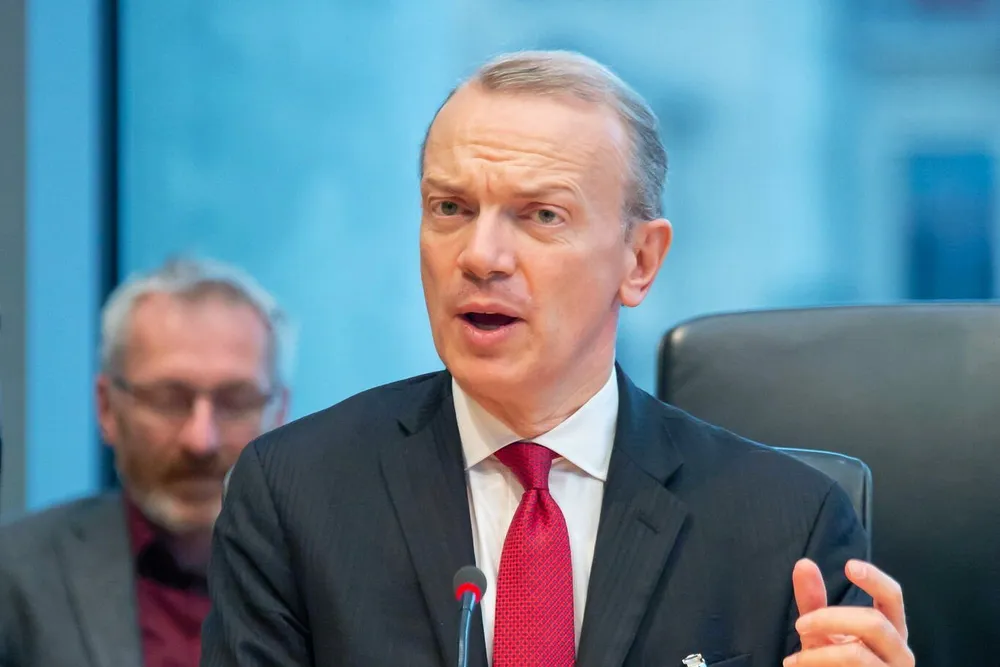Want Dickson's job at WindEurope? This is who you need to win over
Vestas CEO and top executives from heavyweight wind companies to play dominant role in picking a successor, but need to satisfy disgruntled German sector

Even though climate issues are to some degree less central to the policy landscape, security concerns such as those over Russia or Iran make a rapid wind build-out even more pressing, as Europe pursues greater energy independence.
Some were clearly irritated with the Danish wind turbine giant in relation to Dickson’s resignation, while others pointed to a possible lack of “personal chemistry” that could have been a factor. Dickson himself insists it has been his dream for years to become a teacher.
“We expressly regret the decision announced by WindEurope today. The European wind industry is losing a strong player,” BWE president Bärbel Heidebroek said in the release.
“Giles has also repeatedly held direct discussions with representatives of the German federal government, parliament, and associations. Just a month ago, at his initiative and the invitation of BWE and VDMA Power Systems, the national member associations of WindEurope met in Berlin to discuss the implementation of European energy policy,” Heidebroek said.
Whoever follows Dickson, “has big shoes to fill”, one industry expert said.
Vestas and German heavyweights
But being well-connected won’t be enough.
It can be assumed that Vestas CEO Andersen is the most influential person in the hunt for Dickson's successor.
But he won’t decide alone.
A series of key players from the European wind industry are influential at WindEurope, which suggests that the successor will need the backing not only of Vestas but also from at least two or three other major players well placed in the industry lobby.
WindEurope has said candidates for its next CEO will be nominated by a committee with members from its board (chaired by Andersen and co-chaired by Orsted CEO Rasmus Errboe) and its management committee. The board will then decide by a majority vote.
Vestas didn’t wish to comment on Dickson’s succession.
Looking at those two groups of governance at the association, they are heavily dominated by German and Danish company executives (and some wind association representatives from those countries), while Norwegian, Spanish and UK members are also relatively well represented.
In a way that mirrors the importance of those countries within the European wind industry.
But it also means that, as well as convincing the Danish chair and co-chair of WindEurope, the ideal candidate for the next WindEurope CEO must secure the backing of a clutch of industry heavyweights. Among them are CIP partner Martin Neubert, Enercon CEO Udo Bauer, Nordex CEO José Luis Blanco (a former WindEurope chairman), RWE onshore wind CEO for Europe and Australia, Katja Wünschel, and Siemens Energy wind power chief Vinod Philip.
The German part of Europe’s wind industry will certainly want to be heard.
“Giles' commitment to strengthening European supply chains and the German wind industry as a location has contributed to the success of the German wind industry,” Heidebroek pointed out. It is clear that the BWE, by far the biggest of Europe’s wind groups, wants the next CEO to continue making a good case for the sector in Europe’s largest economy.
“The sector must show unity, also to achieve energy security,” one expert said.
(Copyright)